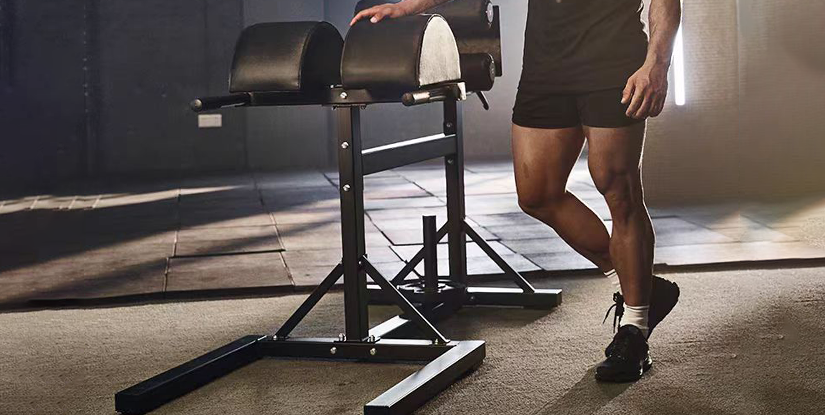Fitness Equipment Stores – Guide to Buying, Renting, and Maintaining Gym Equipment

Overview of Fitness Equipment Stores
Fitness equipment stores serve a broad market that ranges from home users assembling a compact home gym to commercial operators outfitting fitness centers. Professional retailers and online suppliers offer a variety of products, including cardiovascular machines, strength-training systems, free weights, functional training rigs, and recovery equipment. Selecting the right store involves assessing product quality, warranty support, delivery and installation services, and after-sales maintenance.
Types of Fitness Equipment and Typical Offerings
Understanding the main categories helps buyers match equipment to goals and space:
- Cardio machines — treadmills, ellipticals, exercise bikes, rowers, and stair steppers designed for different intensity levels and usage patterns.
- Strength equipment — plate-loaded machines, selectorized systems, cable crossovers, and free-weight stations for progressive resistance training.
- Functional training — rigs, racks, kettlebells, battle ropes, and sleds for versatile movement-based workouts.
- Accessories and recovery — mats, bands, foam rollers, massage guns, and physiotherapy devices to support performance and rehabilitation.
- Commercial solutions — heavy-duty equipment, multi-station layouts, and management software for clubs and corporate fitness centers.
How to Choose a Reliable Fitness Equipment Store
Evaluate stores using these criteria:
- Product range: breadth of brands and models to compare specifications and pricing.
- Quality and certification: industry standards, warranties, and user reviews indicating durability and safety.
- Service offerings: delivery, professional installation, equipment commissioning, and maintenance plans.
- Financing and commercial terms: leasing, bulk purchase discounts, and trade-in options for business clients.
- Technical support: availability of spare parts, service technicians, and clear return policies.
Buying New vs. Used Equipment
Buying new ensures manufacturer warranties and the latest features, while used equipment offers cost savings. When considering used purchases, inspect structural integrity, wear on moving parts, and whether refurbished items include a service guarantee. Reputable stores will provide detailed condition reports and limited warranties for pre-owned units.
Considerations for Commercial Purchases
Commercial buyers should prioritize industrial-grade durability, ease of maintenance, and layout planning. Look for stores that provide site surveys, CAD-based gym design, and project management. Contracts should clearly state lead times, installation scope, safety certifications, and post-installation support.
Home Gym Selection and Space Planning
Home users must balance budget, space, and training goals. Multi-functional machines and adjustable dumbbells maximize versatility in limited spaces. Measure ceiling height and floor load capacity before purchasing heavy equipment. Many stores offer virtual consultations to recommend tailored solutions and accessory bundles.
Delivery, Installation, and Aftercare
Reliable stores offer white-glove delivery and professional installation to ensure equipment is assembled correctly and calibrated. Confirm whether delivery includes removal of packaging, placement, alignment, and training on basic operation. Aftercare options like scheduled maintenance, emergency repairs, and extended warranties protect long-term value.
Trends and Technology
Contemporary stores stock tech-enabled equipment that integrates app connectivity, cloud-based performance tracking, and virtual coaching. Smart cardio consoles, self-powered strength machines, and immersive training platforms are increasingly common. Evaluate the longevity of software support and data privacy policies before committing to cloud-based solutions.
Sustainability and Lifecycle Management
Eco-conscious stores provide sustainable options, such as equipment made from recycled materials or energy-generating cardio machines. Lifecycle services like refurbishment and certified recycling programs extend product life and reduce environmental impact.
Making the Final Decision
Compare quotes including equipment, delivery, installation, warranties, and training. Request references and site visits to existing installations for commercial projects. A transparent contract, clear service-level agreements, and accessible support channels are essential for a secure purchase.
FAQs
What should I check before buying a treadmill?
Inspect motor power, belt size, cushioning, frame warranty, and available service support.
Are commercial machines different from home models?
Yes — commercial machines use heavier components and are rated for continuous use.
Can I finance gym equipment purchases?
Many stores offer leasing, installment plans, or business financing options.
Do stores offer installation services?
Top retailers provide professional delivery and installation, often as an add-on service.
Is refurbished equipment worth buying?
Refurbished items can offer value if they come with inspection records and a warranty.
How long are typical equipment warranties?
Warranties vary: electronics and moving parts shorter, frames often covered for years.
What maintenance is required for gym equipment?
Regular cleaning, lubrication, belt alignment, and scheduled professional servicing.
Can fitness equipment be returned?
Return policies differ; always review the store’s terms before purchase.
How do I choose between brands?
Compare specs, warranty terms, reviews, and available local support services.

